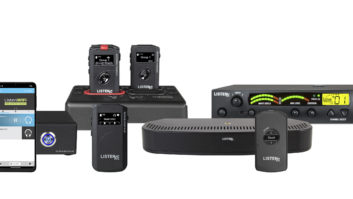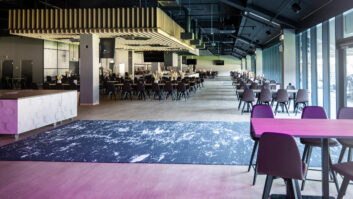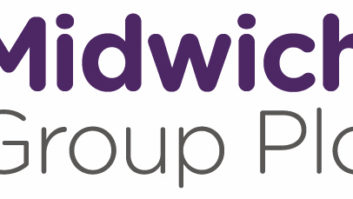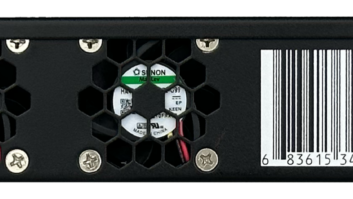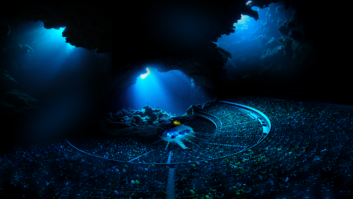Excluding the article’s coverage of Bulgaria, Romania and Cyprus, IE’s last survey that featured Greece and Turkey (December 2007) did not exactly make for cheery bedtime reading. Drawing attention to political turbulence in both countries, the article implied that the long-term future for the commercial sector – and, by extension, the professional installation business – appeared to be rather less than rock-solid.
On a political level, at least, not much has changed since that feature was written. While an early election held last autumn served to return Costas Karamanlis’ New Democracy Party to office and enhance its mandate for reform, Greece continues to be afflicted by poor levels of growth, high inflation and rising unemployment – issues that remain at the top of the NDP’s priority list.
Meanwhile, the grounds for concern about Turkey’s political future have arguably only intensified during recent months. The questioning by the military and key public figures of the governing AK Party’s commitment to secularism in the run-up to 2007’s presidential elections was alluded to in the last IE focus. While the AKP went on to achieve a resounding victory at the polls, the dispute was revived this spring when the Constitutional Court accepted a petition against the governing party and 71 of its officials – among them president Dr Abdullah Gül and prime minister Recep Tayyip Erdogan – for allegedly seeking to introduce Sharia law.
At the time of writing in early July, the AKP is in court defending itself against accusations that, if successfully sustained, could see the party closed down. While this is perhaps an unlikely outcome, a raft of arrests in connection with an alleged planned terror campaign and coup attempt suggest that – whatever the outcome of immediate events – Turkey is destined for a long period of uncertainty as the country looks to make a choice between a contemporary political model that entails closer links with Europe, and one that seeks to align itself with Russia, China and possibly even Iran, as some more ardent nationalists have called for.
Looking west
In the meantime, the country’s long-term ambition to join the European Union hangs in the balance. While the objective came closer to being realised in 2005 with the commencement of membership negotiations, it could take seven years for them to be concluded successfully. Taking current events into account, one is tempted to surmise that it could actually be rather more protracted than that.
Despite this, there is an emphatically optimistic feeling about the Turkish installation business and the country’s financial prospects. This is helped in no small measure by the fact that levels of foreign investment in the country are still very high. A recent business-encouraging report from Turkey’s Investment Support and Promotion Agency (ISPA) is awash with glowing testimonials from major international companies.
HSBC executive David Hodgkinson observes that the past 18 years in Turkey have “witnessed the emergence of a new economic power”, for example, while the proffered statistics only reinforce the positive impression. In the period 2002-07, GDP increased by 187% to $663billion, while imports soared by an even more impressive 197%, topping $107billion in 2007. Moreover, the country – home to the world’s 15th-largest economy – is continuing to support international investment through the auspices of the ISPA and other bodies.
Display technology giant Mitsubishi, and specifically its Visual Display Systems operation, is among the companies to have followed through on the various opportunities. “The professional display sector in Turkey is more developed than in Greece, and in fact this is true across the whole spectrum of activity – advertisement, information, security and utilities,” says business development manager Isaac Schwarzenberg. “In recent times we’ve supplied displays to power stations, telecommunications control centres, transportation control rooms, municipalities, and energy and water companies, among others.”
Drawing attention to an intensifying demand for LED displays and digital signage technology, Schwarzenberg expects the Turkish installation business to continue to make progress, with the pace of development likely to quicken even further if EU membership does eventually become a reality. Recent high-profile projects in Turkey include the provision of a display wall at the Afet Koordinasyon Operasyon Merkezi traffic management and emergency response centre in Istanbul. This comprises 32 67in Mitsubishi Electric 67PH SXGA+ projection modules, augmented by a further 11 46in Mitsubishi Electric LCD monitors to allow operators to view display data close-up. The manufacturer has also recently supplied equipment for a control room belonging to mobile phone carrier Turkcell.
Martin Professional’s area sales manager for Greece and Turkey (among other countries), Martin Solander, says that he has been “pleasantly surprised” by the number of projects that have come the way of the lighting manufacturer and its distributor, Istanbul Telesine, during recent times. Turkey, he notes, is presently subject to “a lot of development, especially in terms of the corporate sector, high-rises and shopping malls. The tourist market is also a factor, although it’s maybe not quite as vibrant as it was a couple of years ago.”
Bosch Communications Systems – parent organisation of such prominent pro-audio and communications brands as DYNACORD, Electro-Voice, Klark Teknik, Midas and Telex – also continues to enjoy good business in Turkey, although not necessarily from projects taking place within the country’s borders. “A lot of major Turkish construction companies are undertaking big projects in eastern Europe – hotel complexes, multi-function halls, cinemas and so on,” notes Klaus Seitz, Bosch Communications Systems’ director – export. “These projects are helping to ensure that our export numbers for Turkey are actually developing very nicely at the moment.”
That’s not to say that Turkey itself isn’t giving rise to some rewarding new opportunities, however. In particular, Seitz alludes to healthy, primarily tourism-driven, demand for installations in hotels, bars, clubs and restaurants. While large-scale public-sector projects are at something of a premium right now (“I don’t see too much work coming from the public institutions”), the Bosch group has recently supplied comprehensive PA solutions for a number of metro stations in Istanbul.
Gateway to success
Perhaps unsurprisingly given Turkey’s ‘gateway’ status, there is also a parallel to a number of other European and Middle Eastern nations when it comes to the growing clamour for ‘one-stop shop’ audio solutions. “The ‘networkability’ of products, their suitability for control and management from a central position, and their ability to be monitored remotely are all becoming more and more important, especially in the installation market,” says Seitz, who stresses that Bosch Communications continues to pursue an open-architecture policy that allows for easy interfacing with other brands and technologies.
Among other items, DYNACORD’s VariLine loudspeakers – suitable for touring as well as installation applications – and PROMATRIX permanent installation systems are performing particularly well for Bosch in the Turkish market. “The VariLine series is doing very nicely, not just for the entertainment business – clubs, discotheques, restaurants – but also for hotels and bigger conference rooms,” says Seitz.
Many of these observations also apply to Bosch’s presence in Greece, a market that Seitz describes as “relatively stable economically, although – like many other European countries – it is maybe a bit less optimistic than a few years ago because of the various wellknown factors that we read about in the newspapers every day. There was a very good period around the 2004 Olympic Games [held in Athens], after which the business slowed down in 2005 before coming up again the year after, with 2007 turning out to be a very good year. So far this year I think we are looking at a stagnating or slow growth rate of about 2-3%.”
Despite this, Seitz indicates that bars, clubs, restaurants and hotels continue to be reliable sources of new work.
Seitz is not the only one to highlight the Olympics as a recent high watermark in the Greek installation business. Mitsubishi’s Schwarzenberg acknowledges this boom period but says that as soon as the Games had concluded, “business levels returned to where they were before. Although we are seeing increased activity in areas such as advertising and broadcast, growth is likely to be steady rather than explosive.”
However, Mitsubishi continues to build its profile in the country via the auspices of an overarching management structure that approaches the south-east European market – principally Greece, Bulgaria and Romania – as a single region. Professional lighting is also not developing quite as fast in Greece as in some other European countries, notes Solander, although two particular sectors – broadcast and nightlife – are continuing to deliver impressive rewards for the company and distribution partner Panou.
“Greece is still the club market in Europe,” he says. “It’s just fantastic to go down there and see all the clubs, restaurants and lounge bars. There are so many venues next to each other that they need to stay very current in order to keep attracting people, which means that a lot of money is spent on design and equipment. I think this all has a lot to do with the lifestyle of the Greek people – they want to go out and they want to be seen. It’s part of that Latin feeling, I guess.”
No one underestimates the challenges facing both Greece and Turkey – as IE can testify, the political situation in Turkey is pretty much changing on an hour-by-hour basis – but, despite this, there is a genuine sense of momentum about these two markets.
While Greece is unlikely to see spectacular growth in the next few years, the underlying market is robust thanks, in particular, to lively nightlife and corresponding demand for highly specified bars and clubs. At the very least, this is set to provide a constant stream of new work for suppliers and integrators.
Turkey, meanwhile, appears to be developing at an impressive rate, with its professional installation business buoyed by high levels of investment and a surprising number of new construction projects taking place in countless different sectors. Although it is diff icult not to fret about the country’s political future, its network of ambitious businesses and reliable supply of international investors does offer considerable grounds for optimism

